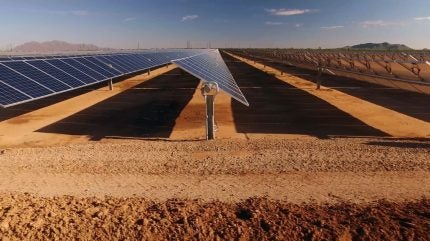
The European Commission (EC) has approved €1bn ($1.08bn) in Greek state aid to support the development of two solar-plus-storage projects.
These projects, which will enhance the stability of the Greek electricity grid, will have a combined capacity of 813MW.
Construction will be completed by mid-2025.
The first project, Faethon, includes plans to construct two solar facilities, each with 252MW of capacity.
The solar facilities will be complemented by integrated molten-salt thermal storage units and an extra-high voltage substation.
Faethon will generate electricity during the day and store the surplus energy to be converted back into electricity during times of peak demand.
The second project, known as the Seli Project, is a 309MW solar site supported by a lithium-ion battery energy storage system.
Alongside Faethon, Seli will contribute 1.2 terawatt-hours annually to Greece’s renewable energy – 2.1% of the nation’s total electricity production in 2020.
The projects will increase Greece’s renewable energy production by 8% from 2020 levels.
EC executive vice-president Margrethe Vestager said: “These €1bn measures support two innovative renewable projects that will accelerate the green transition, while minimising potential distortions to competition.
“The measures will help the EU and Greece meet our decarbonisation and climate neutrality targets, as well as reduce our dependence on imported fossil fuels, in line with the EU Solar Energy Strategy and the REPowerEU plan.”
The state aid will be provided through a two-way contract for difference scheme lasting 20 years, with payments being made annually.
The investment in energy storage is a key step towards ensuring flexibility, stability and reliability in the energy systems of the future.
The EU is moving towards a higher share of renewable energy in its electricity mix, which is projected to be around 69% by 2030 and 80% by 2050.



